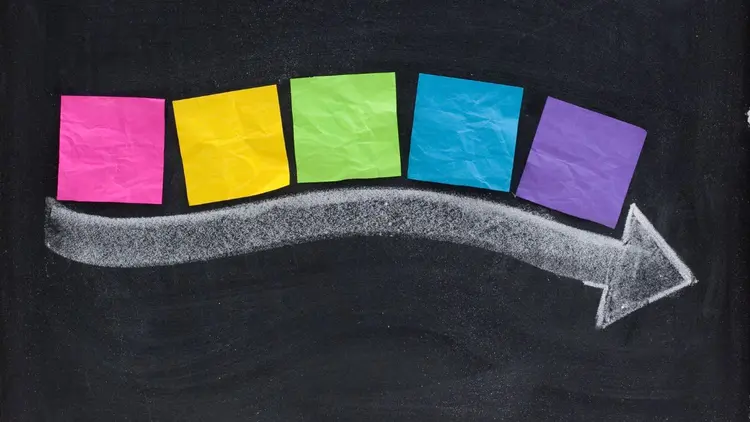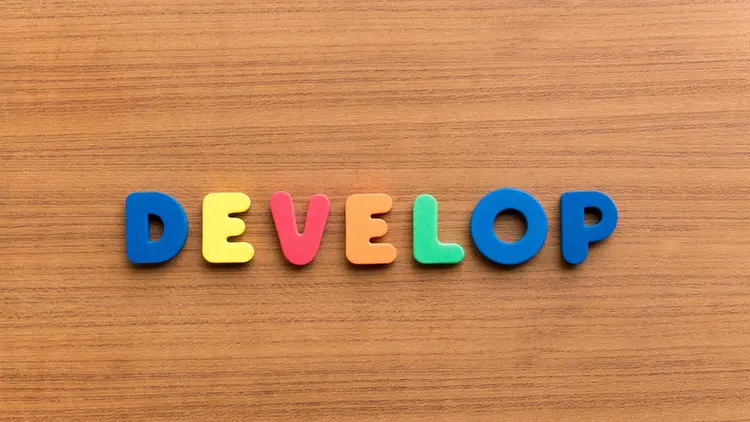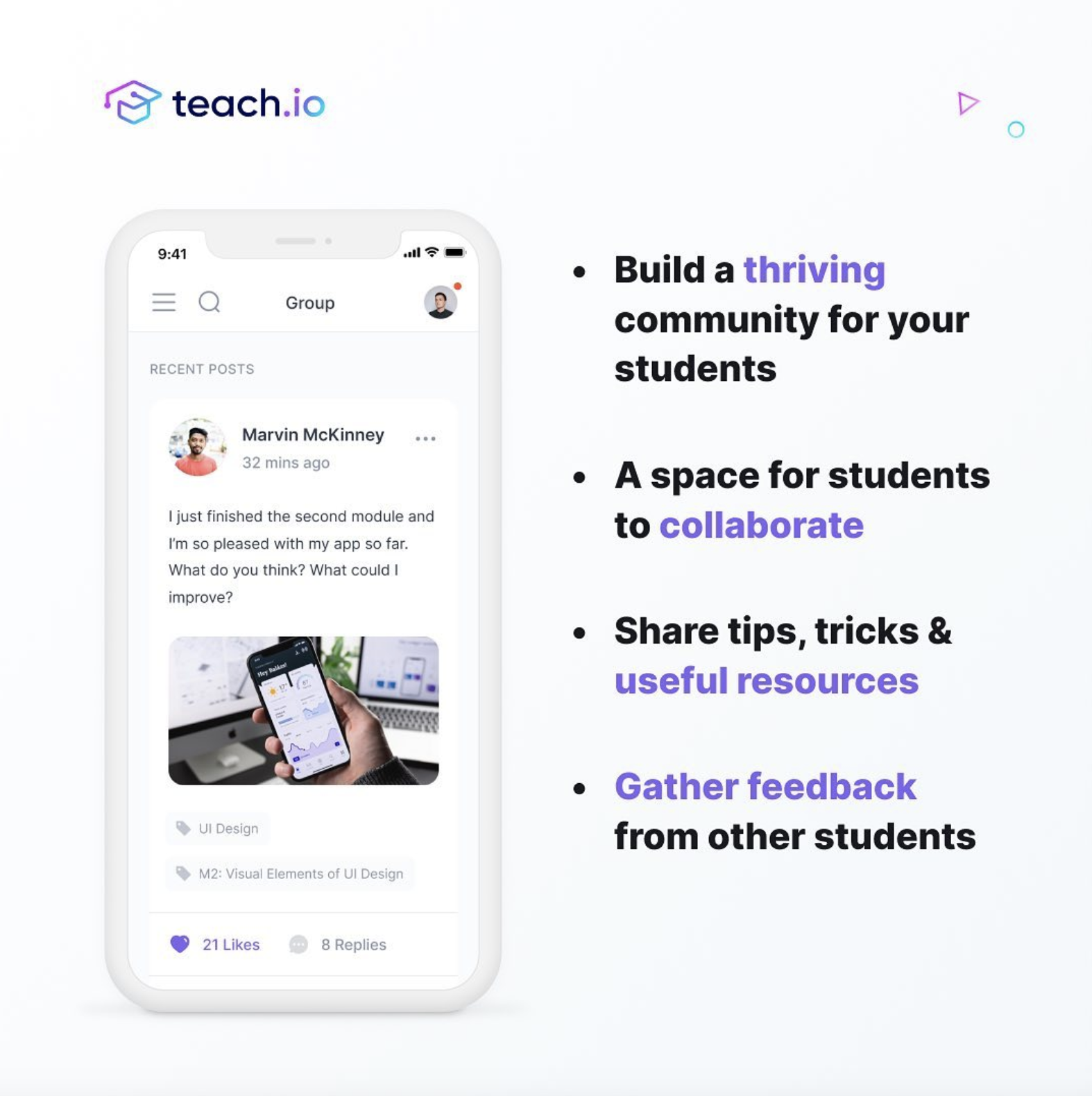Hey there, future course creator! Are you ready to dive into the exciting world of online courses? But wait, you’re probably wondering, “How long does it take to develop an online course?” Good news – you’re about to find out!
The Clock is Ticking: Understanding Timeframes

Let’s cut to the chase. The time to develop an online course isn’t a one-size-fits-all scenario. It’s like asking how long it takes to write a book or cook a gourmet meal – the answer varies. Typically, the development timeline for an online course is around 5 months.
But, hey, don’t let that number scare you! It’s possible to create a course in as little as a few days or it might take up to a few months, depending on various factors like course depth and your experience.
Fast Track or The Scenic Route?
Are you aiming for a mini-course or an in-depth flagship course? Your choice here is a game-changer. Mini courses can be whipped up in just a few days, while a more targeted course might take a few weeks. But if you’re dreaming big and aiming for a flagship course, gear up for a few months of dedication.
Experience Matters
If you’re a newbie, don’t fret. The first online course is always the hardest. As you gain experience, you’ll become more efficient in creating courses. You’ll soon be crafting great online courses like a pro!
Let’s Talk Hours
On average, expect to invest anywhere from 25 to 500 hours in your online course creation process. Yes, that’s a wide range, but remember, quality matters. A high-quality course with engaging course videos and well-researched content doesn’t happen overnight.
The Creation Journey: A Deep Dive

Embarking on the online course creation process is indeed an adventure, and every adventure requires meticulous planning and execution. Let’s delve deeper into the critical stages of this journey:
1. Market Research: The Foundation of Your Course
Market research isn’t just a preliminary step; it’s the foundation of your entire course. It’s about understanding who your target audience is, what they need, and how they learn best. This involves analyzing market trends, identifying gaps in existing courses, and understanding the demographics and psychographics of your potential learners.
It’s also about gauging market demand – are people willing to pay for this course? Utilize surveys, social media polls, and forums to get a pulse on what your audience is seeking. This thorough research ensures your course material is not just informative but also highly relevant and sought after.
2. Course Outline: Crafting Your Course’s Backbone
Think of your course outline as the skeleton of your course – it supports and shapes the entire body of content. Crafting a comprehensive course outline involves breaking down your course into manageable modules and lessons.
This step is crucial in organizing the course content and ensuring a logical flow that facilitates learning. A well-structured course outline aids in maintaining focus and covering all necessary topics without overwhelming your students. To see how a well-thought-out course outline looks, take inspiration from this exemplary guide.
3. Content Creation: The Essence of Your Educational Offer
Content creation is where your expertise and creativity come into play. This stage is all about developing engaging and informative course materials that cater to various learning styles. It involves a mix of writing comprehensive scripts, designing interactive and visually appealing slides, creating video content that captivates, and developing quizzes and exercises that reinforce learning.
Remember, diverse content types ensure a more enriching and inclusive learning experience. The goal here is to create courses that not just to inform but to engage and inspire your students.
4. Recording and Editing: Giving Life to Your Vision
Recording and editing are where your course begins to take a tangible form. High-quality video content is paramount in today’s online learning landscape. This phase involves setting up the right environment for recording – considering lighting, sound quality, and backdrop.
Post-recording, the editing process refines your content, adding elements like graphics, overlays, and audio enhancements to make your videos professional and engaging. If video editing is not your strong suit, consider investing time in learning basic editing skills or outsourcing to professionals. The effort you put in here significantly elevates the learner’s experience.
5. Launching and Marketing: The Launchpad to Success
The final stage in your course creation journey is launching and marketing your course. This step is about making noise in the right circles and attracting learners to your course. Developing an online course transcends content creation; it’s also about strategizing how to reach and convince potential students.
Create a compelling sales page that highlights the benefits and uniqueness of your course. Develop a marketing plan that encompasses email campaigns, social media promotion, and partnerships or affiliations. Remember, even the best course needs effective marketing to reach its target audience and achieve success.
Each stage of the online course creation process is integral to the success of your educational product. From understanding your audience in market research to crafting an engaging course outline, from creating compelling content to producing high-quality videos, and finally launching and marketing your course – every step is a building block towards creating an impactful and successful online course.
Setting a Realistic Timeline for First-Time Online Course Creators

Creating your first online course can be a thrilling and rewarding journey. However, it’s essential to set realistic expectations and timelines to ensure a smooth and successful course development process. Let’s break down the steps involved in creating an online course and the time each step might take, offering tips to stay committed and organized throughout the process.
Step 1: Conceptualization and Market Research (1-2 Weeks)
The first step in online course development is to conceptualize your course. Decide on the topic, determine if there’s a demand for it, and identify your target audience. This phase involves thorough market research, which could take anywhere from a few days to a couple of weeks. Utilize online tools and platforms to gauge interest in your topic and analyze competitors.
Tip: Set aside specific hours each day to focus on this phase, ensuring you’re not overwhelmed while juggling it with a full-time job or other commitments.
Step 2: Planning and Course Outline (2-3 Weeks)
Next, outline the structure of your course. Create a detailed plan that includes the course modules, lessons, and the type of content (videos, written materials, quizzes) you’ll provide. This process can take 2-3 weeks, depending on the complexity of your course. A well-structured course outline is crucial for a great course.
Tip: Use project management tools or a simple spreadsheet to keep track of your progress and deadlines.
Step 3: Content Creation (4-8 Weeks)

Creating content is the most time-consuming part. Depending on whether you’re creating a mini course covering basic concepts or an advanced course with in-depth material, this phase can take anywhere from a month to two months. Writing scripts, creating slides, and developing written materials are all part of this phase.
Tip: Break down the content creation into smaller tasks and set weekly goals to keep the momentum going.
Step 4: Production of Course Materials (2-4 Weeks)
Once your content is ready, it’s time to produce the course materials. This includes recording videos, editing them, and preparing any additional resources like PDFs or PowerPoint slides. For first-time creators, this phase might take longer, ranging from two to four weeks.
Tip: If video editing isn’t your forte, consider investing in a basic editing course or outsourcing this task to save time.
Step 5: Setting Up on an Online Course Platform (1-2 Weeks)
Choosing and setting up your course on an online course platform is a critical step. Allocate one to two weeks for this phase. Research and select a platform that aligns with your needs, whether it’s for hosting a great online course with interactive elements or a simple platform for a straightforward course.
Tip: Start with user-friendly online course platforms that offer good support and community forums for guidance.
Step 6: Testing and Feedback (1 Week)
Before launching, spend about a week testing your course. This includes checking for technical glitches and getting feedback from a small group of users.
Tip: Choose testers from your target audience and be open to constructive feedback, making necessary adjustments.
Step 7: Marketing and Launch (2-3 Weeks)
The final step is marketing your course and launching it. Create a marketing plan, set up a landing page, and promote your course through social media, email marketing, and other channels. This phase can take 2-3 weeks, leading up to the launch day.
Tip: Plan your marketing strategy early in the course development process. Utilize pre-launch marketing tactics to build excitement.
Stay Committed and Flexible
Remember, these timelines are estimates and can vary based on the complexity of your course and your working style. The key to creating your own course successfully is to stay committed, organized, and flexible. Adjust your timelines as needed, and don’t rush the process. Creating a great online course takes time, but with dedication and proper planning, you’ll be able to launch a course that resonates with your audience and adds value to their lives.
Final Tip: Don’t forget to celebrate small milestones throughout your course creation journey. It’s a significant achievement to develop and launch your very own online course!
Key Factors Affecting the Time Required to Develop an Online Courses

Understanding the variables that impact the timeline for creating an online course is crucial for educators and content creators embarking on the journey of digital education. The process of course creation is multifaceted, involving several critical factors that can significantly influence the development duration.
Complexity of the Course Content
The subject matter of the course plays a pivotal role in determining the development time. Courses designed to introduce learners to a very specific topic or those offering a free course on fundamental concepts may require a shorter timeframe to develop. In contrast, crafting an advanced e-learning course with a comprehensive curriculum demands more in-depth planning, research, and material preparation, extending the development period.
Duration of Production Efforts
The amount of time that course creators can dedicate to developing their courses is another significant factor. Individuals who have the privilege of focusing on creating online courses as their main occupation are likely to progress more swiftly through the development phases compared to those who are balancing course creation with other professional or personal responsibilities. The dedication to creating courses full-time allows for a more concentrated effort on content development, course structure, and market readiness.
Depth of Learning Objectives and Course Structure
The level of detail and the depth of the learning objectives outlined for the course directly impact the amount of time needed for development. A flagship course, designed to be a comprehensive exploration of a subject area, necessitates extensive research, a well-thought-out course structure, and the creation of detailed, engaging content. Such a course not only aims to educate but also to immerse learners in a rich learning experience, which naturally requires a more substantial investment of time and resources.
Efficiency of Technology and Tools

Leveraging the right technology and tools can significantly expedite the course creation process. Utilizing an all-in-one platform that simplifies the complexities of how to create an online course can be a game-changer. These platforms often provide integrated solutions that allow creators to design, host, and sell online courses all from one location.
By reducing the logistical challenges and streamlining the course development workflow, these platforms can save creators a considerable amount of time and effort, making the journey from concept to launch much smoother.
The time it takes to create an online course can vary widely, influenced by factors such as the complexity of the topic, the creator’s availability and focus, the depth and structure of the course content, and the efficiency of the tools used.
By understanding and strategically managing these factors, educators can more effectively plan their course development projects, ensuring a balance between quality and time efficiency. Whether aiming to create a free course to share basic knowledge or developing a series of in-depth courses to sell online, creators must navigate these variables to successfully bring their educational content to the eager learners of the digital world.
Wrapping Up

Developing an online course is an ongoing process. It’s about creating a learning experience that resonates with your audience. Whether it takes a few hours, a few days, or a few months, the key is to start creating and keep improving.
And remember, there’s no single answer to “how long does it take to develop an online course.” It’s a journey that varies based on your skills, the course’s complexity, and your dedication.
So, ready to embark on this exciting journey? Start with market research, plan your course outline, dive into content creation, and don’t forget the power of a good marketing plan. Your first course might take longer, but as you create more, you’ll become a seasoned course creator in no time.
And if you’re still hungry for more insights into the world of online courses, why not explore the myths and realities in “Are Online Courses Harder Than You Think?”. It’s a great read for aspiring course creators!
There you have it – your comprehensive guide on how long it takes to develop an online course. Now, go forth and create that amazing course you’ve been dreaming of!






Build once, earn forever
Are you ready to start making an income from your skills? Explore the full potential of our cutting-edge course creation platform with a 14-day FREE trial, and start earning on autopilot.
Try For Free
